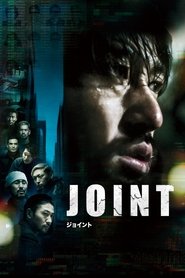This Japanese neo-noir astutely observes that 'real' criminality today is not situated in the hyperlocal extortion rackets as it was in the past, but is instead found in corrupt real estate transactions, identity theft, widespread data harvesting (for no obvious gain) and phone scans that target the vulnerable. Moreover, it asserts that 'venture capital'—eerily infamous at time of watching due to the recent collapse of Silicon Valley Bank—is, at best, a fashionable way to launder your money and/or your reputation on the backs of credible young engineers who profess 'they want to change the world'.
Yet, somehow, all these engineers end up simply making it easier for small businesses to improve their sales by a 10% (as in this film), or making a kind of Tokyo Analytica in order to sell data of dubious providence & value to credulous fools. The film is dryly witty in this respect, at one point informing the audience via an explicit caption that 'venture' once meant an intrepid journey into the unknown, not-so-subtly implying that the infinity of instant grocery delivery services in my area are hardly the spiritual successors of Drake, Amundsen, Hillary and Shackleton.
More delicately, however, this film takes place in all of the contemporary 'non-places' that are so familiar to us today to the point we don't notice them. These are all those anonymous venues of deliberate nothingness delineated so well in Ivor Southwood's "Non-Stop Inertia", such as the car parks of international airports and chain coffee outlets. Do you all remember that great scene in The Godfather where Michael Corleone retrieves the gun planted by Clemenza and kills Sollozzo and McCluskey in a local Italian restaurant? Well, welcome to the sterile and tawdry twentieth century depicted in Joint, and picture that same murder in a blandly anonymous hotel room that is, somehow, devoid even of the concept of 'nothingless' but has an uncanny resemblance to the prison cell our protagonist was just released from. (Oh, the social commentary!) Still, the film updates Southwood's 2011 thesis by positing that the new office in the 2020s is actually in the back of a taxi... an assertion that many folks who have their work email on their smartphone might easily agree with.
Yet all of this is under the surface, and Joint either suffers from a surfeit of characters (or is not careful enough in their interactions) to permit time for any deeper allegorical reference to come to the surface whilst watching in 'real-time'. Whilst I am, of course, alienated to some degree by the subtitles, it was hard at points to differentiate between the motivations of the many factions and characters within the narrative who did not evince enough distinct characteristics in order to make keeping track them require too much attention from the viewer. It was also difficult to interpret the introduction of the first female voice in the third act of the film (!) as anything but a 'correction' made in the final draft, rather than a comment on 'hyper-masculine' postmodernity that the film might want to portray — remember that modern economics, whatever label you wish to give it, has only a performative regard for your professed gender. A missed opportunity, I am sure, especially as the ur-noirs of previous decades were so illuminating in their treatment of women characters (i.e. as problematic yet highly symbolic narrative devices). Banal complaints, perhaps, but this genre is mature enough that missteps such as these are disproportionately disappointing.
[Watched as part of the Cambridge Japan Film Fest 2023, itself part of the Japan Foundation Touring Film Programme 2023]
Synopsis: After serving 2 years in prison, ISHIGAMI Takeshi (YAMAMOTO Yikken) spent two years working on a construction site and building up his funds before he returned to Tokyo with the help of Yasu, his best friend. He is determined to try and go straight but before he can do that, he has to raise even more money to break free of the criminal underworld and that requires a deep dive. He enlists his Korean friend Junghi and starts a business selling data for phone fraud to his Yakuza friend Yuki. As the business grows, Takeshi can just about make escape velocity, however, his old ties are holding him back and as a split in a yakuza family signals that start of a war, Takeshi finds himself getting dragged back down to the criminal underworld.

